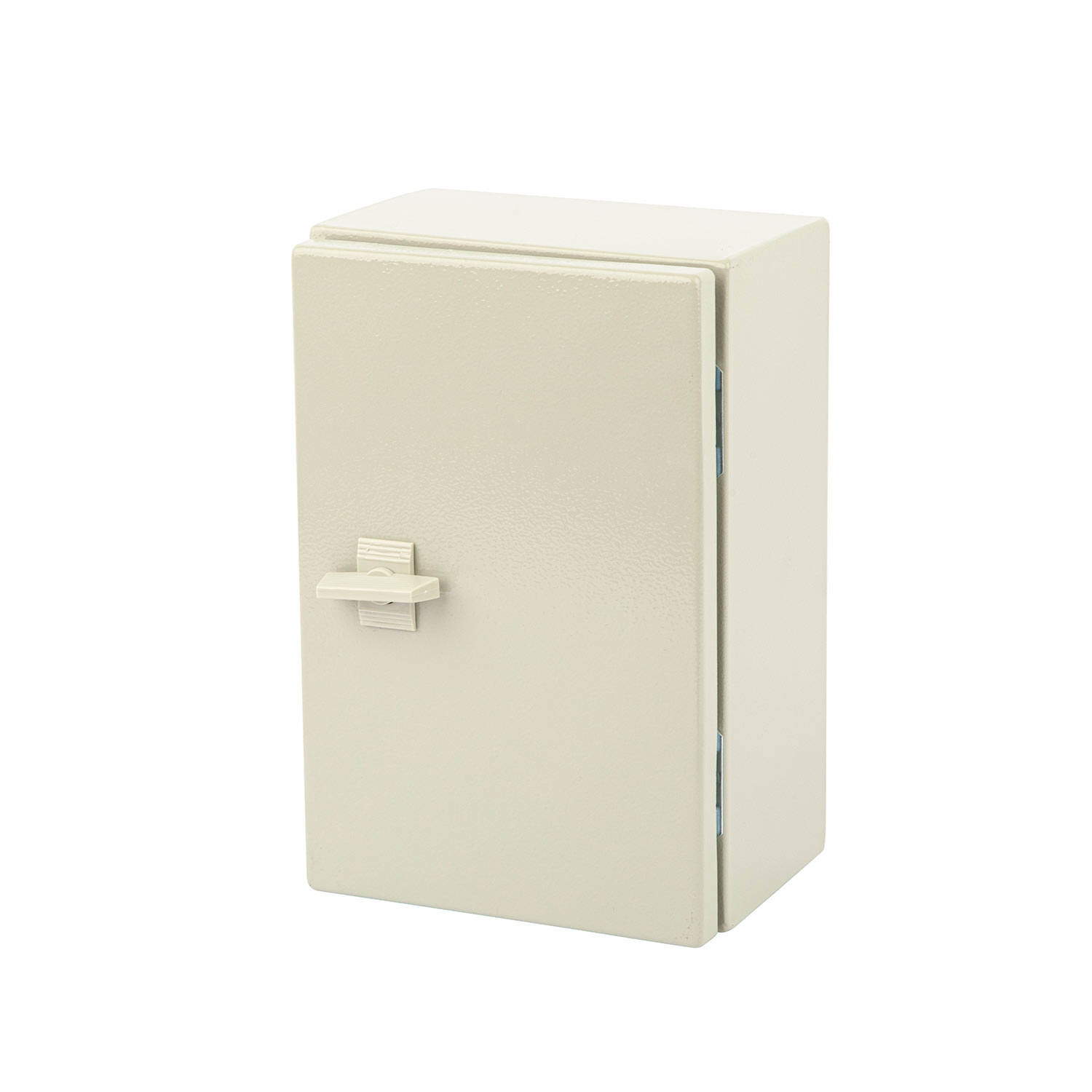Understanding Electrical Box Materials for Safe Home Installations
The choice between plastic and metal electrical boxes represents a crucial decision in any electrical installation project. An electrical box serves as the foundation for housing wires, connections, and devices while ensuring safety and code compliance. Making the right selection not only impacts the installation process but also affects long-term performance and safety considerations.
Whether you're renovating your home, working on a new construction project, or simply replacing outdated fixtures, understanding the distinct characteristics of plastic and metal electrical boxes will help you make an informed decision. Let's explore the comprehensive details of both options to determine which best suits your specific needs.
The Fundamentals of Plastic Electrical Boxes
Material Composition and Durability
Plastic electrical boxes are typically manufactured from PVC or thermoplastic materials specifically engineered for electrical applications. These materials undergo rigorous testing to ensure they meet safety standards and provide adequate protection for electrical components. The composition includes flame-retardant additives and stabilizers that prevent degradation over time.
Modern plastic electrical boxes offer impressive durability despite their lightweight nature. They resist impacts, maintain structural integrity under normal conditions, and won't rust or corrode. However, they may become brittle in extremely cold temperatures or degrade when exposed to prolonged UV radiation.
Installation Benefits and Ease of Use
One of the most significant advantages of plastic electrical boxes lies in their installation process. The lightweight nature makes them easier to handle and position, especially during overhead installations. Most plastic boxes feature built-in mounting brackets or tabs that simplify attachment to studs or joists.
Knockouts in plastic boxes can be removed without tools, and the material allows for easy modification when needed. Additionally, plastic boxes eliminate the need for grounding, as they're naturally non-conductive, streamlining the installation process.
Metal Electrical Box Characteristics
Strength and Protection Features
Metal electrical boxes, typically constructed from galvanized steel or aluminum, offer superior structural strength. This robust construction provides excellent protection against physical damage and ensures long-term stability. The metal composition also acts as an effective barrier against electromagnetic interference, which can be crucial in certain applications.
These boxes excel in high-temperature environments and offer enhanced fire protection. The metal construction contains potential electrical fires within the box, providing an additional layer of safety for the surrounding structure.
Grounding and Conductivity Considerations
Metal electrical boxes provide inherent grounding capabilities through their conductive nature. This characteristic offers an additional path for fault current and enhances overall electrical safety. However, proper grounding requires attention to detail during installation, including the use of appropriate grounding screws and connections.
The conductive properties of metal boxes also make them ideal for situations where electromagnetic shielding is necessary, such as in commercial or industrial settings where sensitive equipment operates nearby.
Application-Specific Selection Criteria
Residential Applications
In residential settings, both plastic and metal electrical boxes have their place. Plastic boxes often prove ideal for interior walls, ceiling fixtures, and basic outlet installations. They're particularly well-suited for renovations where weight considerations and ease of installation are priorities.
However, certain residential applications may benefit from metal boxes, especially in areas prone to physical damage or where local codes require enhanced fire protection. Common examples include garage installations or outdoor applications where durability is paramount.
Commercial and Industrial Uses
Commercial and industrial environments typically favor metal electrical boxes due to their robust construction and superior protection capabilities. These settings often involve more demanding conditions, including exposure to chemicals, extreme temperatures, or physical impacts.
The decision may also be influenced by specific code requirements for commercial buildings, which frequently mandate metal boxes in certain applications. The enhanced grounding capabilities and fire resistance of metal boxes align well with commercial safety standards.
Cost and Long-term Value Analysis
Initial Investment Considerations
While plastic electrical boxes generally carry a lower upfront cost, the price difference between plastic and metal options has narrowed in recent years. The initial investment should consider not only the box itself but also associated materials and installation time. Plastic boxes often reduce labor costs due to their easier installation process.
Metal boxes, though typically more expensive initially, may prove more cost-effective in applications where durability and longevity are paramount. The higher cost often reflects their superior construction and protective features.
Maintenance and Replacement Factors
Long-term maintenance requirements differ significantly between plastic and metal electrical boxes. Plastic boxes require minimal maintenance and won't rust, but they may need replacement if damaged or degraded by environmental factors. Metal boxes generally offer longer service life but may require periodic inspection for corrosion in damp locations.
The replacement process also factors into long-term costs. Plastic boxes typically prove easier and less expensive to replace, while metal box replacement often involves more complex procedures and higher material costs.
Frequently Asked Questions
Can plastic electrical boxes be used outdoors?
While some plastic electrical boxes are specifically rated for outdoor use, they must be clearly labeled as weather-resistant and UV-protected. Always verify the box's rating and local code requirements before outdoor installation. Additional weatherproofing measures, such as proper covers and gaskets, are essential for outdoor applications.
Are metal electrical boxes required by code in certain situations?
Yes, many local building codes require metal electrical boxes in specific applications, particularly in commercial construction, fire-rated assemblies, or where physical protection is crucial. Always consult your local electrical code and building inspector for specific requirements in your area.
How do temperature extremes affect plastic versus metal electrical boxes?
Metal electrical boxes generally handle temperature extremes better than plastic ones. Plastic boxes can become brittle in very cold conditions and may soften or deform in high heat. Metal boxes maintain their structural integrity across a wider temperature range, making them more suitable for environments with significant temperature fluctuations.

